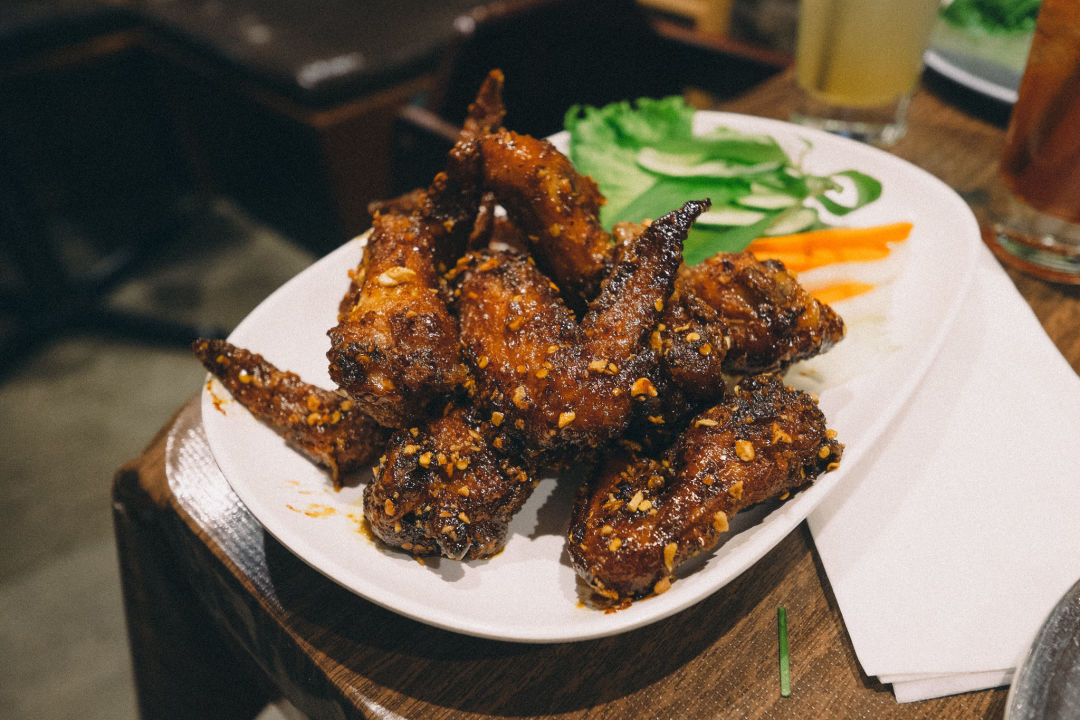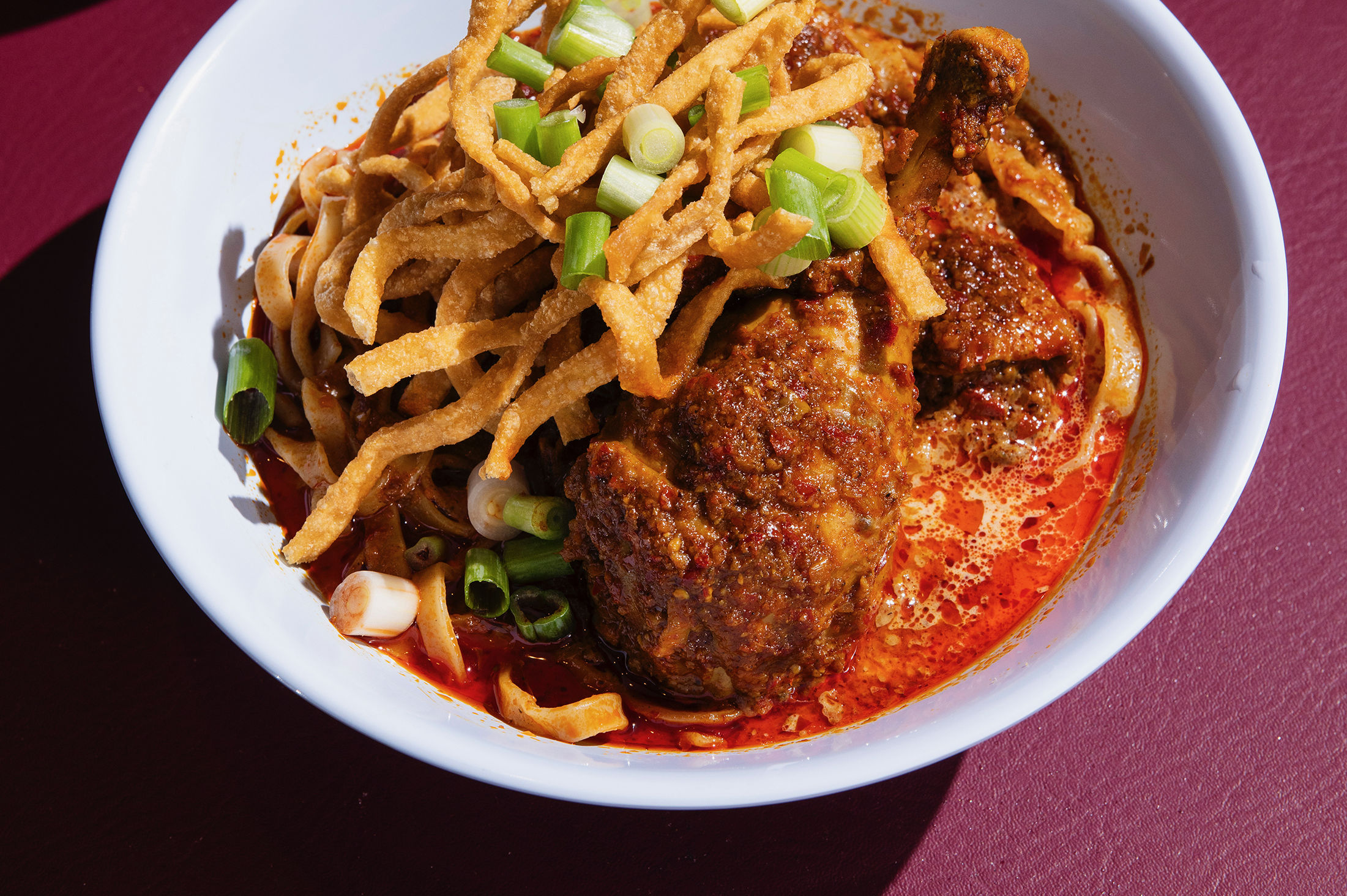Pok Pok Announces Its Permanent Closure

Pok Pok, famous for its fish sauce wings, has closed permanently.
Image: Trevor H/Creative Commons
It’s the end of an era: Andy Ricker, chef-owner of Pok Pok Restaurants, announced via Instagram today that Pok Pok is closing permanently.
“The truth of the matter is that for the last 5 years it has been a struggle for many reasons (other restaurateurs know the list) and the onset of global pandemic made it very clear that the business was not going to be able to survive the economic realities we are all facing,” the post reads.
Pok Pok started selling Thai street food on Division in 2005, known particularly for its fish sauce wing recipe developed with Ricker’s first employee, Ich “Ike” Truong. Pok Pok grew to multiple restaurants in Portland, including Whiskey Soda Lounge and spin-offs like noodle house Sen Yai and charcoal grilling spot Ping Yang Pow. At one point, Ricker also had satellite locations in Los Angeles, Las Vegas, and New York City. Ricker’s fame and accolades grew—Pok Pok and Whiskey Soda Lounge made our list of Best Restaurants in 2007, and Ricker went on to win the James Beard award for Best Chef: Northwest in 2011. He was the subject of a Vice documentary in 2014, received recognition from national publications, and published a Pok Pok cookbook.
Ricker made a statement this March as one of the few restaurateurs to close their businesses completely during the pandemic—no takeout or delivery—after he learned that chef Floyd Cardoz had died of COVID in New York City. The business did, however, begin to offer meal kits in an attempt to stay afloat. “I simply cannot bear the thought of one of our team becoming ill for the sake of preparing some chicken wings,” Ricker said.
As the pandemic wore on, Ricker announced in June that four of the five Pok Pok locations would be closing permanently. “Closures are necessary so that the original PP on SE Division will have a chance to reopen when it is safe and financially tenable,” he wrote.
And in an interview with Portland Monthly in June, Ricker pondered whether there was value in Pok Pok, a Thai restaurant owned by a white man, coming back at all. That question seemed especially relevant this year, particularly with the continuing conversations on the importance of properly compensating BIPOC, amplifying their presence in food media, leveling racial disparities between front-of-house staff and back-of-house staff, how to break down barriers to business ownership that people of color face, and the importance of preventing white people profiting from cultural appropriation.
“Should Pok Pok reopen? It’s a big question to ponder: Do we have something to say and should we have the platform to say it? These are important questions to ponder,” Ricker said in the interview. “Over the years, I’ve really tried hard to be respectful of the food and culture we’re representing. I’ve always said, ‘Don’t look at me, look at the cuisine, these amazing people that make it. I am but a student.’ I truly believe that I’ve been coming from the right place. Right now is the time to be thinking about the fact that we live in a world that systemically lowers the value of food that people of color make and raises the value of food that white people make.”
In the Pok Pok closing announcement, Ricker said he plans to move to Thailand permanently to live on a farm with his wife and cats. If you’re really missing the restaurant’s Ike’s fish sauce wings, though, there are still some available through Pok Pok’s limited-run ghost kitchen collaboration—or you can make them yourself.
And if the pandemic can take down a Portland giant like Pok Pok or bankrupt a local behemoth like Blue Star Donuts, it’s not hard to imagine that winter is going to be a tough time for independently owned restaurants, food carts, and bars, especially those that are immigrant and/or BIPOC-owned. The Senate still hasn’t passed the RESTAURANTS act introduced by Rep. Earl Blumenauer, which would provide $120 billion in aid to independently owned restaurants with 20 locations or fewer, and Oregon still doesn’t allow to-go cocktails. A National Restaurant Association study from September found that nearly 100,000 restaurants nationwide have closed due to the pandemic, and 40% of restaurants don’t expect to last another 6 months without some form of federal relief.




